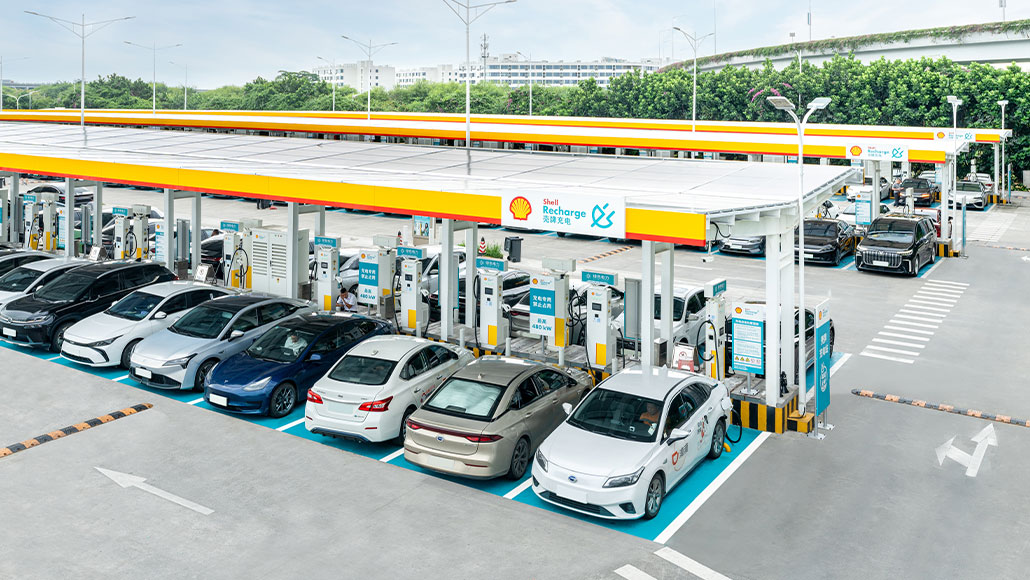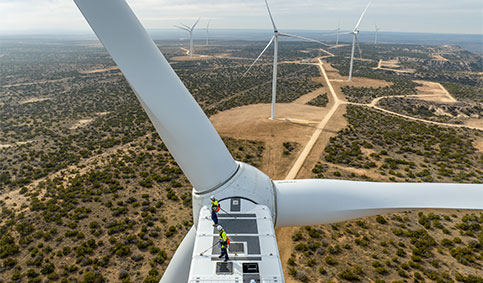Road transport
Policy has a vital role in helping to move customer demand and infrastructure investment in road transport towards low-carbon energy. Policy roadmaps, anticipatory support for infrastructure, and support and incentives for low-carbon choices will each play an important role.
For passenger cars and vans, we support the creation of policy frameworks that enable the widespread adoption of electric vehicles and the phase-out of tailpipe emissions.
For heavy-duty vehicles, we support policy frameworks that set vehicle standards that provide a clear path to net-zero emissions, underpinned by energy policies that encourage the use of the fuels with the lowest carbon intensity and the use of renewable electricity.
In the EU, we provided a response to the consultation on the bloc’s 2040 climate target in which we noted our support for the EU’s target to phase out 100% of tailpipe emissions from new cars and vans from 2035, and highlighted the critical enablers to support this.[1] The Alternative Fuels Infrastructure Regulation (AFIR) aims to drive more and better public charging for electric vehicles in Europe. We supported the introduction of capacity- and distance-based targets for electric vehicle charging infrastructure for the light- and heavy-duty vehicle sectors as part of the AFIR. We also supported consumer-related provisions in the AFIR which improve the interoperability of and consumer experience at charging locations.
In the USA, we advocated the implementation of the Inflation Reduction Act (IRA) and Infrastructure Investment and Jobs Act (IIJA), which include provisions for electric vehicle tax credits and infrastructure. In 2023, the US Environmental Protection Agency (EPA) proposed new regulations for tailpipe emissions standards for light- and medium-duty vehicles, and for heavy-duty vehicles. We believe there is an important role for low- and zero-carbon fuels in decarbonising road transport, as a complement to electrification during the transition, which is not currently recognised by the proposals. We are engaging on these issues through the American Petroleum Institute (API).
In Canada, we supported the government’s proposal to require all new light-duty vehicles sold in Canada to have no tailpipe emissions by 2035. In our response to the government’s consultation, we provided our views on policy measures to support this transition.[2]
In Australia, the government published a National Electric Vehicle Strategy in 2023.[3] In our 2022 response to the government’s consultation on the strategy, we stated our support for it and advocated a comprehensive policy package to support an effective and steadily increasing rate of electric vehicle adoption.[4] A key element of the National Electric Vehicle Strategy is the development of a vehicle fuel efficiency standard for passenger and light-duty commercial vehicles. The government published proposals for the standard in 2023, which we supported.
In China, we are a member of the national electric vehicle standard-setting working group. We supported the development and publication of China’s electric vehicle fast-charging standard.
We provide more detail about our advocacy on some of these topics on our website.[5]

[1] www.shell.com/external-redirects/eu-2023-six-shell-submission-eu-2040-climate-target
[3] www.dcceew.gov.au/energy/transport/national-electric-vehicle-strategy
[5] www.shell.com/sustainability/transparency-and-sustainability-reporting/advocacy-and-political-activity/climate-and-energy-transition-advocacy-updates.html. We also provide further information about decarbonising mobility on our website: www.shell.com/what-we-do/mobility.html









